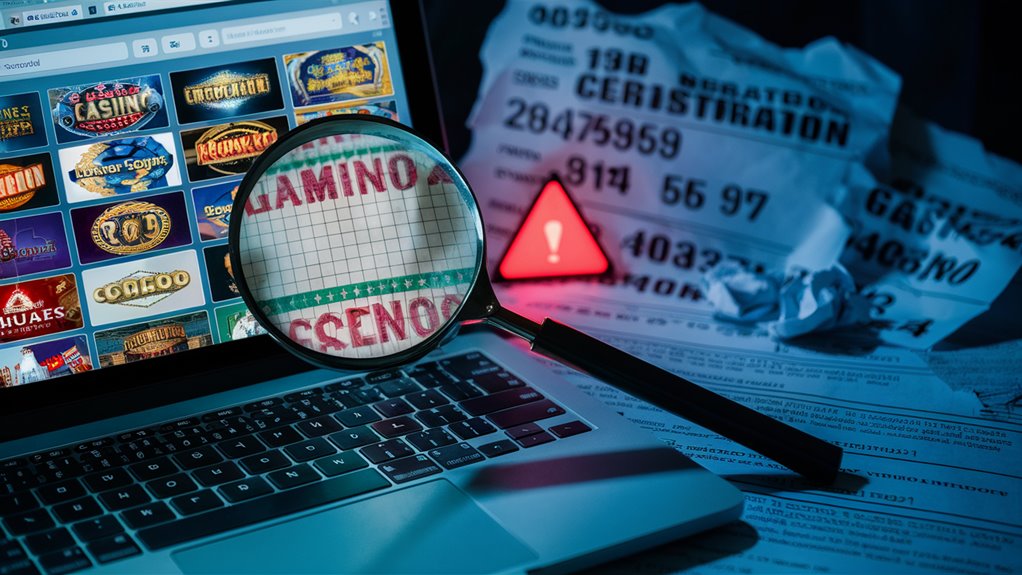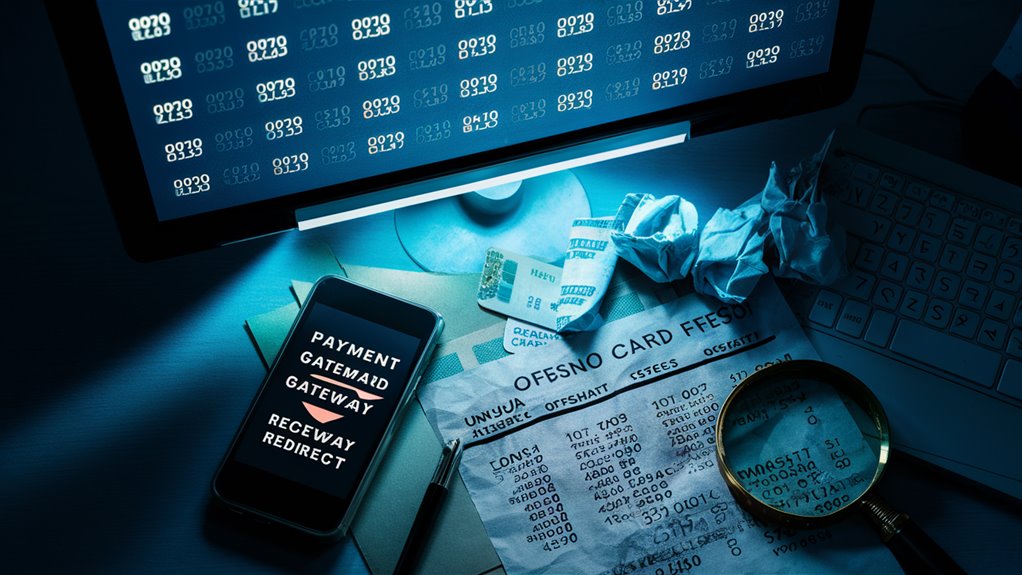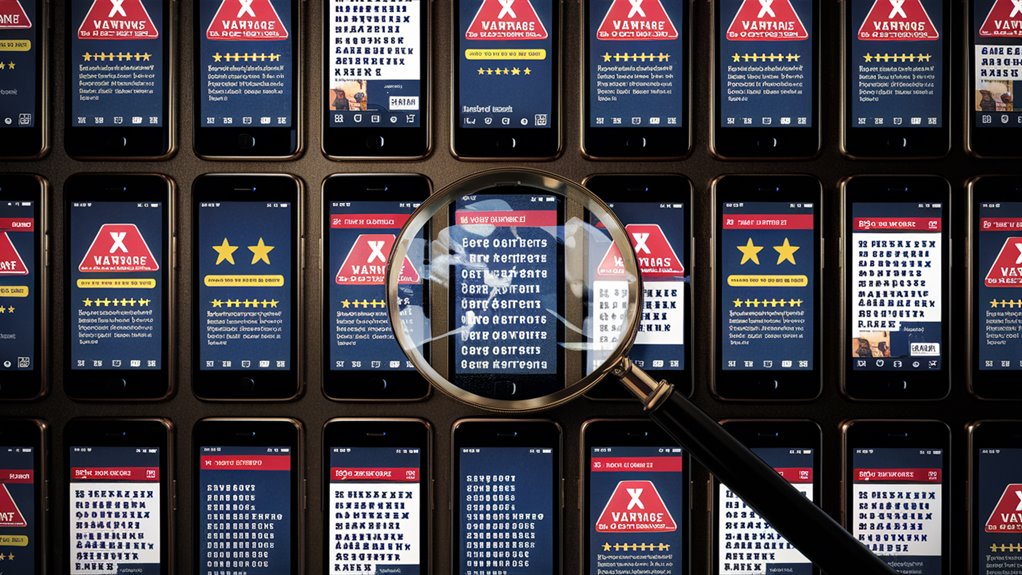You know how tricky it can be to find a reliable online casino these days? Well, let’s be honest, it’s like walking through a maze where some operators are really good at hiding their true colors. Here’s the thing: while legitimate casinos follow all the rules and keep everything out in the open, shady platforms use clever tricks to take more of your money than they should.
Think of it like this: you’re probably familiar with the normal house edge in casino games, right? But rigged sites go way beyond that. They’ve got all sorts of sneaky tactics up their sleeves, from tweaking their software to creating impossible-to-win bonus conditions that’ll drain your wallet before you even realize what’s happening.
Let me break this down for you. Some of these dishonest operators might look totally legit at first glance. The website looks professional, the games seem normal, but there’s often something fishy going on behind the scenes. Imagine playing a game where you keep getting really close to winning, but somehow never quite make it. Frustrating, right?
So, if you want to keep your money safe and make sure you’re getting a fair shot at winning, it’s super important to know what these warning signs look like. Trust me, once you know what to look for, spotting these rigged platforms becomes much easier. And that’s exactly what we’re going to talk about, because nobody wants to throw their money away on a rigged game.
Licensing and Regulatory Red Flags

Let’s talk about something really important when it comes to online casinos: those telltale signs that might indicate whether a casino is legit or not. You know how they say the devil’s in the details? Well, that’s especially true here.
First off, any reputable online casino should be totally upfront about their licensing. Just scroll down to the bottom of their website, and you should see all their licensing info right there.
Can’t find it? That’s not a good sign. What you really want to see are licenses from places that take gambling regulation seriously, like Malta, Gibraltar, the UK, Isle of Man, or Alderney.
Here’s a pro tip: don’t just take their word for it. Go ahead and check that license number yourself on the regulator’s official website.
You’d be surprised how many shady operators try to pull a fast one by displaying fake or expired license numbers. And if you see a casino claiming licenses from multiple jurisdictions that don’t make sense together, or from places known as tax havens with zero gambling oversight, run the other way.
But wait, there’s more to look out for. Legitimate casinos get their games tested regularly by independent agencies like eCOGRA, iTech Labs, or GLI.
These are the folks who make sure the games aren’t rigged and that you’re getting fair payouts. So if you can’t find any current certification seals, or if the links to certificates lead nowhere, something’s probably fishy.
Plus, any casino worth its salt will have responsible gambling tools and resources readily available. If they’re not taking problem gambling seriously, that’s usually a sign they’re not playing by the rules.
Suspicious Payment Processing Methods

Let’s talk about payment methods at online casinos, because this is where things can get pretty tricky.
You know how legitimate casinos always partner with names you trust, right? Think Visa, Mastercard, PayPal, and those big-name e-wallets we all know. Well, if you spot a casino that only deals in cryptocurrency or some payment methods you’ve never heard of, that should raise an eyebrow. Now, don’t get me wrong, cryptocurrency isn’t inherently bad, but it shouldn’t be your only option.
Here’s something to watch out for: unreasonably high 먹튀검증 유튜브카지노 minimum deposits or weird withdrawal restrictions. You know what I mean, right? Like when a casino asks for huge deposits upfront or makes it super difficult to get your money out.
Legitimate casinos usually process withdrawals within a few business days (typically 1-5), and they’re totally upfront about their fees. No surprises there.
And get this, if a casino isn’t asking to verify who you’re before letting you move money around, that’s a huge red flag.
The good ones always implement what we call KYC (Know Your Customer) procedures. It’s just basic security to prevent fraud and money laundering. So if nobody’s asking for your ID or proof of address, well, something’s not quite right.
Oh, and one more thing about security: always check if the casino uses encrypted connections for financial stuff. It’s actually pretty simple to verify this.
Just look for “https://” at the start of the website address and that little padlock icon in your browser’s address bar when you’re on payment pages. These small details can tell you a lot about how seriously a casino takes your security.
Game Software and Provider History

Let’s talk about casino software providers, because they’re actually super important when it comes to choosing where to play online.
You know how some casinos seem a bit sketchy? Well, the secret is often in their software partners.
The most trustworthy online casinos only team up with big names like Microgaming, NetEnt, Playtech, and Evolution Gaming. These companies aren’t just random developers, they go through intense audits and have to maintain proper licenses from gaming authorities.
Want a quick way to check? Just scroll to the bottom of a casino’s website 먹튀커뮤니티 최신정보 and look for these provider logos, then verify their licensing info.
Here’s the thing about casino software: if you spot unfamiliar provider names or ones you can’t find much information about, that’s a red flag.
These unknown providers might be running rigged games where the Random Number Generators (RNGs) aren’t exactly random. Take a few minutes to Google the software provider’s background.
Look for any scandals, player complaints, or suspicious behavior. The good ones are totally open about their operations and will even publish their Return to Player (RTP) percentages right there for everyone to see.
Now, let’s talk about how the games actually perform. Good casino software should run as smoothly as your favorite mobile apps.
If you notice games freezing up just when you’re about to win, or patterns that seem too good (or bad) to be true, something might be fishy.
Real, legitimate games come with certification seals from independent testing agencies like eCOGRA, GLI, or iTech Labs. Think of these seals as quality guarantees, kind of like a health inspector’s rating at your favorite restaurant.
Player Reviews and Complaint Patterns

Want to know what really goes on at an online casino? Well, let’s look beyond those flashy ads and fancy promises by checking out what actual players have to say. You know, the real stories from people who’ve been there and played there.
Start by digging around different review sites, forums, and social media. What you’re looking for are patterns, those same issues that keep popping up again and again.
Pay close attention when players talk about slow payouts, suspicious account freezes after winning big, or those sneaky changes to wagering terms.
The best reviews to focus on are the ones with all the details, like 도박안전하게 하는법 specific dates and amounts. It’s even better when players share their back-and-forth with customer service.
Here’s a tip: if you notice lots of similar complaints, particularly recent ones, that’s usually not a good sign. Watch out for casinos that either ignore player problems or just copy-paste generic responses without actually fixing anything.
Don’t forget to check out the casino watchdogs too, like AskGamblers, ThePOGG, and Casinomeister. These sites are pretty much the detectives of the online gambling world.
They keep detailed records of player complaints and how casinos handle them. Plus, they often step in to help resolve disputes.
If you find a casino with tons of unresolved issues or, worse yet, one that’s been blacklisted by multiple review sites, run the other way. And if there are accusations about withholding winnings or rigging games? That’s about as red as red flags get.
Unfair Bonus Terms

Let’s talk about those tempting casino bonuses that catch your eye when browsing online gambling sites.
You know the ones, right? They look amazing at first glance, but here’s the thing: the real story is hiding
Payout Speed and Withdrawal Issues

Let’s talk about what really matters when it comes to getting your money out of online casinos. You know how frustrating it can be waiting for your winnings, right?
Well, here’s the deal: good casinos will get your money to you within 24-72 hours, no questions asked. But the shady ones? They’ll come up with every excuse in the book to hold onto your cash.
You might notice some red flags along the way. Ever had a casino asking for document after document, or claiming they’re having “technical difficulties” that just never seem to get fixed?
That’s usually not a good sign. And if they’re constantly trying to convince you to cancel your withdrawal and keep playing, run for the hills. Legitimate casinos respect your decision to cash out.
Here’s another thing to watch out for: withdrawal limits. Some sketchy casinos will set ridiculously low weekly or monthly caps.
Picture winning big, only to find out you can only withdraw a tiny amount each week. It’s pretty obvious what they’re hoping for, you’ll get so frustrated that you’ll just gamble the money away instead.
So, what can you do to protect yourself? Before putting any money in, do your homework. Check out what payment methods they offer and, more importantly, look up real player experiences on forums and review sites.
If you keep seeing stories about people struggling to get their money or having withdrawals mysteriously canceled, well, that’s probably not the casino for you. Trust your gut, if something feels off, it probably is.
Common Questions
Can Rigged Online Casinos Manipulate Live Dealer Games?
Let’s talk about live dealer casino games and the possibility of manipulation. While these games are generally more secure than their digital counterparts, there’s still some room for dishonest operators to try pulling fast ones on players.
You might think that seeing real dealers in real-time makes these games foolproof, but sadly, that’s not always the case. Unethical casinos can employ several sneaky tactics to tip the odds in their favor. For instance, they might introduce subtle video delays, use specially prepared card shoes, or even work with dealers who are in on the scheme.
But here’s the good news: you can protect yourself by being smart about where you play. Your best bet is to stick with casinos that hold proper licenses and operate under strict regulatory oversight. These legitimate operators have too much to lose by engaging in shady practices, and they’re regularly monitored by gambling authorities.
Think of it like choosing a bank for your money. You wouldn’t trust your savings to some random person on the street, right? The same principle applies here. Licensed casinos are like established banks, while sketchy operators are more like that stranger with a questionable investment opportunity.
How Long Does It Typically Take for a Rigged Casino to Get Shut Down?
Let’s dive into the reality of rigged casinos and their shutdown timelines. You might be surprised to learn that these shady operations can actually stay in business way longer than you’d expect, sometimes running for months or even years before anyone catches on.
Think of it like a game of cat and mouse. While some rigged casinos get caught pretty quickly thanks to alert players who notice suspicious patterns, others are remarkably skilled at flying under the radar. The timeline really comes down to a few key factors: how many players speak up about their concerns, how quickly gambling regulators launch investigations, and honestly, how strict the local oversight is in the first place.
Here’s the frustrating part: some rigged casinos manage to keep going indefinitely without facing any real consequences. This is especially true in areas with loose regulations or in online gambling spaces where jurisdiction gets murky. You know how it goes, the shadier the location or setup, the harder it is for authorities to crack down.
The bottom line? There’s no fixed timeline for shutting down a rigged casino. It could take anywhere from a few weeks to several years, and some might never face justice at all. Your best bet is always to stick with licensed, well-regulated casinos that have solid reputations in the industry.
Are Mobile Casino Apps More Likely to Be Rigged Than Desktop Versions?
Let’s tackle a common concern among mobile casino players. You might be wondering if those casino apps on your phone are more likely to be rigged than their desktop counterparts. Well, here’s the truth: when you’re dealing with legitimate, licensed casinos, the risk levels are pretty much identical across all platforms.
Think about it this way: reputable casinos use the same software whether you’re playing on your laptop or tapping away on your phone. It’s like accessing your bank account, the service remains consistent regardless of how you log in.
But here’s the thing about dishonest operators: they can target players through any platform. Bad actors aren’t particularly picky about whether they’re scamming through a mobile app or a desktop site. What really matters is choosing a properly licensed casino with a solid reputation, rather than worrying about which device you’re using to play.
Do Rigged Casinos Collaborate With Each Other to Share Player Information?
Regulated casinos do share player information, but not in the way you might think. Through legitimate industry networks and databases, casinos primarily exchange data about problem gamblers, known cheaters, and individuals who’ve been caught counting cards. This helps maintain fair play and supports responsible gambling practices across the industry.
Well, you might wonder about more secretive information sharing. The truth is, most reputable casinos stick to legal channels and official databases rather than operating through underground networks. They’re actually more focused on protecting their reputation and gaming licenses than targeting specific players.
Think of it like how banks share information about fraudulent activities, just on a smaller scale. Licensed casinos typically collaborate through official gaming associations and regulatory bodies, keeping everything above board and transparent.
So while casinos do communicate with each other, it’s primarily to maintain industry standards and prevent illegal activities. Their main goal isn’t to track individual players but rather to ensure a safe, fair gaming environment for everyone involved.
Can VPN Usage Help Protect Players From Rigged Online Casino Scams?
Let’s talk about VPNs and online casino safety. You might think that using a VPN is like wearing armor against rigged casino games, but here’s the reality: while a VPN can hide where you’re playing from, it can’t protect you from unfair game mechanics.
Think of it this way. If you’re playing cards with someone who’s stacked the deck, changing your seat at the table won’t make the game any fairer. The same principle applies to online casinos. A VPN simply masks your location and routes your internet traffic through different servers, but the core game mechanics remain unchanged.
So what happens when you connect through a VPN to an online casino? Well, you’ll still face the same odds, the same algorithms, and the same potential for manipulation. Your IP address might show you’re in a different country, but the casino’s software operates independently of your connection method.
The bottom line? If you’re worried about rigged games (and you should be), focus on choosing licensed, reputable casinos with proven track records. A VPN is great for privacy and accessing geo-restricted content, but it won’t shield you from dishonest casino practices or manipulated odds.